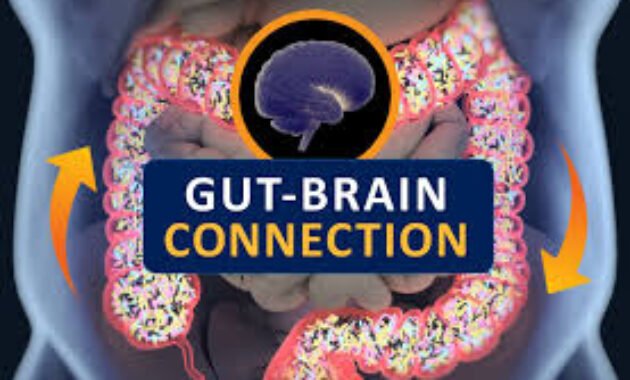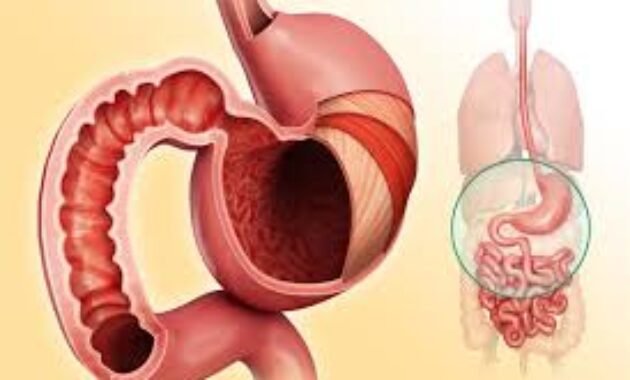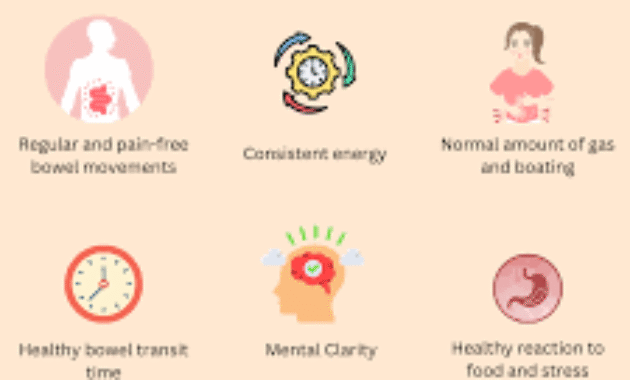The Importance of Gut Health: Your Complete Guide to a Stronger Digestive System

Introduction
Your gut is more than just a food processor—it’s the foundation of your overall health. Often called the “second brain,” the gut influences digestion, immunity, mental well-being, and even skin health. When your gut is out of balance, you may experience bloating, fatigue, mood swings, or frequent illnesses.
But here’s the good news: improving gut health is within your control. By making smart dietary choices, managing stress, and adopting gut-friendly habits, you can transform your digestive health and Transform your life for the better.
We’ll unpack the following in this all-inclusive guide:
- Why gut health matters more than you think
- Symptoms of an Imbalanced Digestive System
- Science-backed ways to heal your gut naturally
- Who should consider optimizing their gut function?
- Common myths and FAQs
Let’s dive in!
Why Gut Health Is Crucial for Overall Wellness
1. The Gut-Brain Connection

Your gut and brain communicate constantly through the gut-brain axis. About 90% of serotonin (the “feel-good” hormone) is produced in the gut. An imbalanced gut microbiome can contribute to anxiety, depression, and brain fog.
2. Immune System Support

Did you know that nearly 70% of your immune system is located in your gut? A healthy gut microbiome helps fight infections, reduces inflammation, and may lower the risk of autoimmune diseases.
3. Digestion & Nutrient Absorption

A well-functioning gut breaks down food efficiently, ensuring your body absorbs essential vitamins and minerals. Poor gut health can lead to deficiencies, even if you eat a nutritious diet.
4. Weight Management

Research shows that gut bacteria influence metabolism and fat storage. An imbalanced microbiome may contribute to weight gain or difficulty losing weight.
5. Skin Health

Conditions like acne, eczema, and rosacea are often linked to gut inflammation. Healing your gut can lead to clearer, healthier skin.
How to Tell If Your Gut Health Is Compromised

How do you know if your gut needs attention? Watch for these red flags:
✅ Chronic Digestive Issues – Bloating, gas, diarrhea, or constipation
✅ Frequent Fatigue – Even after a full night’s sleep
✅ Unexplained Weight Changes – Sudden weight gain or loss without diet changes
✅ Food Intolerances – New sensitivities to gluten, dairy, or other foods
✅ Skin Problems – Acne, eczema, or excessive dryness
✅ Mood Swings & Anxiety – Poor gut health can worsen mental health
✅ Weakened Immunity – Getting sick often? Your gut might be the culprit
If you experience several of these symptoms, it’s time to take action.
How to Improve Gut Health Naturally

1. Eat More Gut-Friendly Foods
- Probiotics (live beneficial bacteria): Yogurt, kefir, sauerkraut, kimchi, miso
- Prebiotics (food for good bacteria): Garlic, onions, bananas, asparagus, oats
- Fiber-rich foods (supports digestion): Whole grains, legumes, fruits, vegetables
- Bone broth (heals gut lining): Rich in collagen and amino acids
2. Cut Out Gut-Damaging Foods
- Processed foods (disrupt gut bacteria)
- Excess sugar & artificial sweeteners (feed harmful bacteria)
- Alcohol & caffeine (can irritate the gut lining)
3. Quench Your Thirst Wisely
Water keeps digestion smooth and prevents constipation. Herbal teas (like ginger or peppermint) can also soothe the gut.
4. Manage Stress
Chronic stress kills good gut bacteria. Try:
- Meditation
- Deep breathing exercises
- Regular walks in nature
- Adequate sleep (7-9 hours per night)
5. Exercise Regularly
Movement stimulates digestion and supports a diverse microbiome. Even a 30-minute daily walk helps.
6. Consider Supplements (If Needed)
- Probiotic supplements (for restoring good bacteria)
- Digestive enzymes (if you struggle with bloating after meals)
- L-glutamine (helps repair the gut lining)
Who Should Pay Special Attention to Their Gut Health?

While everyone benefits from a healthy gut, these groups should be extra mindful:
🔹 People with digestive disorders (IBS, Crohn’s, acid reflux)
🔹 Those with autoimmune conditions (linked to gut inflammation)
🔹 Individuals under chronic stress (stress harms gut bacteria)
🔹 Frequent antibiotic users (antibiotics kill both good and bad bacteria)
🔹 Anyone with skin issues (acne, eczema, psoriasis)
Debunking Common Gut Health Myths
❌ Myth: “Probiotic yogurt is enough for gut health.”
✅ Truth: While helpful, you also need prebiotics, fiber, and stress management.
❌ Myth: “All bacteria are bad.”
✅ Truth: Your gut needs good bacteria to function properly.
❌ Myth: “Gut health only affects digestion.”
✅ Truth: It impacts immunity, mood, skin, weight, and more.
What is the typical timeframe for gut healing?
A: It varies—some notice improvements in 2-4 weeks, while others may need 3-6 months of consistent effort.
Q: Are probiotic supplements necessary?
A: Not always. Food sources (yogurt, kefir, fermented foods) work well, but supplements can help if your diet lacks probiotics.
Q: Can gut health affect anxiety?
A: Absolutely! The gut-brain connection means poor gut health can worsen anxiety and depression.
Q: Does alcohol destroy gut bacteria?
A: Excessive alcohol disrupts the gut microbiome. Moderation is key.
Final Thoughts
Your gut health impacts nearly every aspect of your well-being—from digestion to mental clarity. By making simple, sustainable changes (like eating more fiber, reducing stress, and staying hydrated), you can restore balance and feel your best.
Start small: Swap one processed snack for a gut-friendly alternative today. Your future self will thank you!
Share This Guide!
If you found this helpful, share it with friends and family. A healthy gut is a happy gut!




